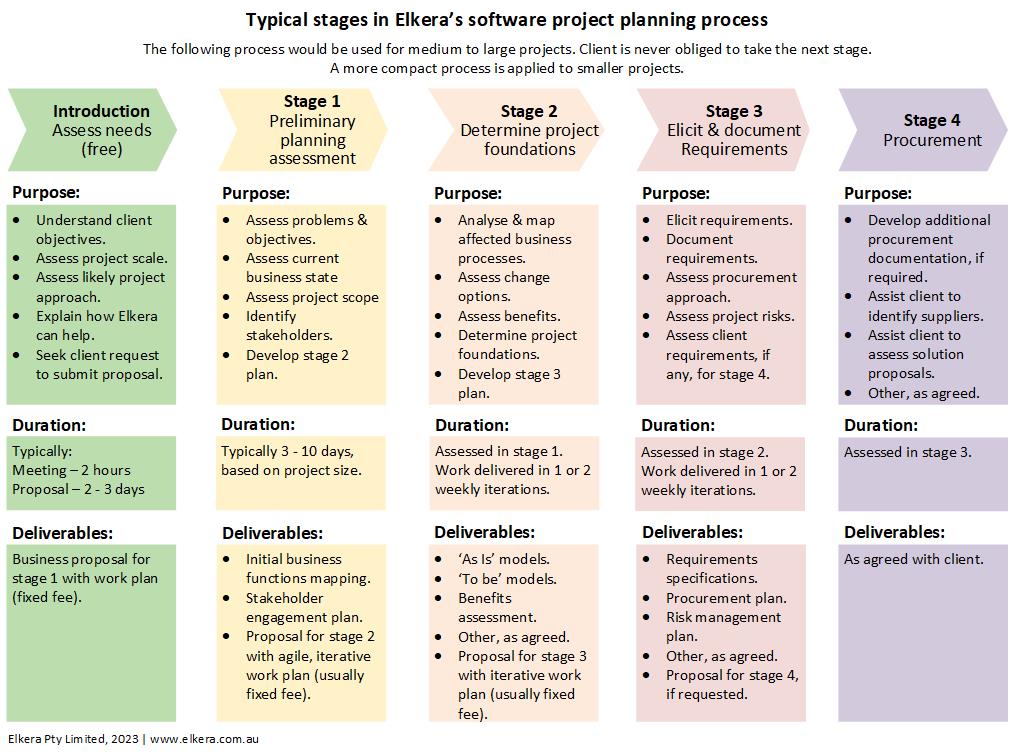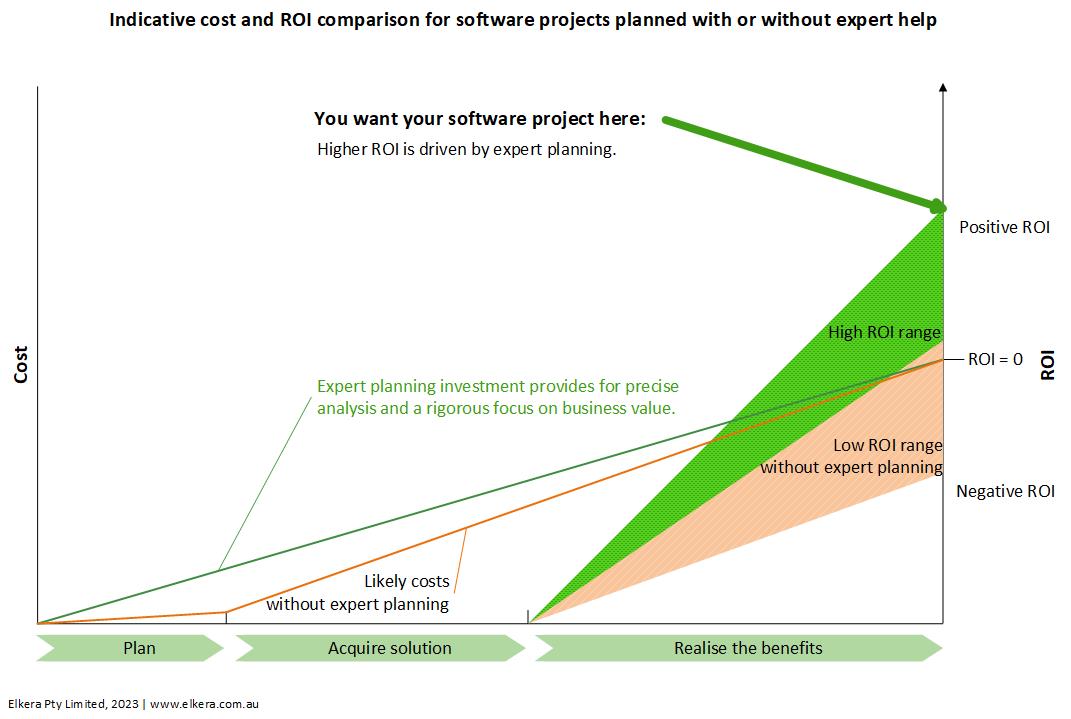Why Elkera is the right expert to elicit your software requirements
By Peter Meyer, Principal Consultant, Elkera Pty Limited
Making the business case for engaging an expert for your software requirements
The four related topics have assessed the risks involved in planning projects with a particular focus on projects for small and medium enterprises (SMEs) where there is a temptation to rely on unskilled, in-house personnel to develop software requirements. The conclusions from those topics are:
- Software projects are high risk undertakings for any organisation. There is a very high failure rate with only around 30% of software projects rated as successful. Business managers should be alarmed at that figure.
- Business software is not a normal product. Business software is part of a system in which software and business processes with staff and customers must be aligned.
- Identifying the requirements to achieve the necessary alignment of software with the business requires considerable expertise to ensure than business needs are correctly understood and to setup the project for success.
- For a variety of reasons, many SMEs try to use unskilled, in-house personnel to develop software requirements.
- It is not realistic to expect unskilled personnel to achieve a positive outcome. Using unskilled personnel to develop software requirements is one of the biggest risks to your project. It greatly increases the risk that the project will under-perform against its expectations or even fail completely. It is unlikely that the project will deliver its maximum potential return on investment.
- SMEs need a strategy to help them establish the business case for the overall project and for engaging an expert consultant.
- An incremental planning approach with a preliminary planning assessment provides a low-cost and low-risk way for SMEs to establish the foundations of their project and also to test whether they have found the right expert for their needs.
Establish a business case
The first step in building a business case is to do a preliminary planning assessment that will:
- Identify the real business problems and your objectives.
- Assess the scope of the project that is needed to solve the identified problems.
- Assess the scale of benefits expected from the project. This requires that the business establish clear, measurable criteria for project success.
- Assess expectations about the likely nature of a solution. Is it expected to be off-the-shelf (including cloud based), customised off-the-shelf or bespoke?
- Based on the preceding assessments, assess the steps that should be followed to achieve a successful result. This step should provide an indication of the scale and nature of the planning work, and an early assessment of risks.
- Enable the business to assess if it has found a consultant who can really help to make the project a success at a reasonable cost.
- Enable the consultant to provide a proposal to undertake the planning work with the business. That proposal should include an assessment of the benefits that the consultant can provide, compared to, say, in-house planning.
Whatever the outcome of your preliminary assessment, you should obtain valuable information that will inform further decision making. It is a low risk, high benefits approach.
Elkera’s planning process
Elkera applies an agile, incremental planning process that is designed to reduce risks for both parties and provide certainty for each stage of the planning work.
The first major step in Elkera’s approach is to conduct the preliminary scoping assessment described earlier.
Elkera’s structured approach for medium to large projects is described in the following diagram:

The benefits of Elkera’s expert approach
Your investment in planning with Elkera will enable you to greatly reduce project risks, maximise return on investment and satisfy your system users.
The following diagram may help visualise the difference in likely outcomes between expert and non-expert planning:
[Investment-ROI compare – web.jpg]

Persuading your management
Elkera offers a resource pack to help build the case within your organisation.
Download now: A Pitch to Management to Engage an Expert Planning Consultant.
Ready to get started?
To help get started, Elkera offers two free consultations:
- A free 30-minute consultation during which both parties can gain an understanding of the other.
- A free 2-hour consultation with your project team to review the project in a little more detail. In this step, the objective is to enable Elkera to provide a formal proposal to conduct the first stage of the project, should you ask Elkera to do so.







